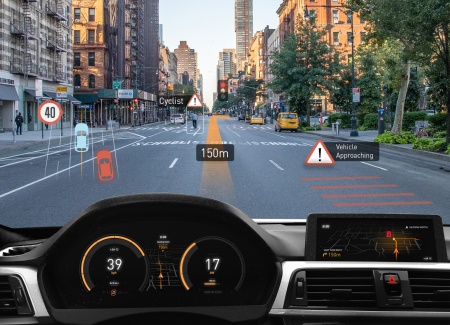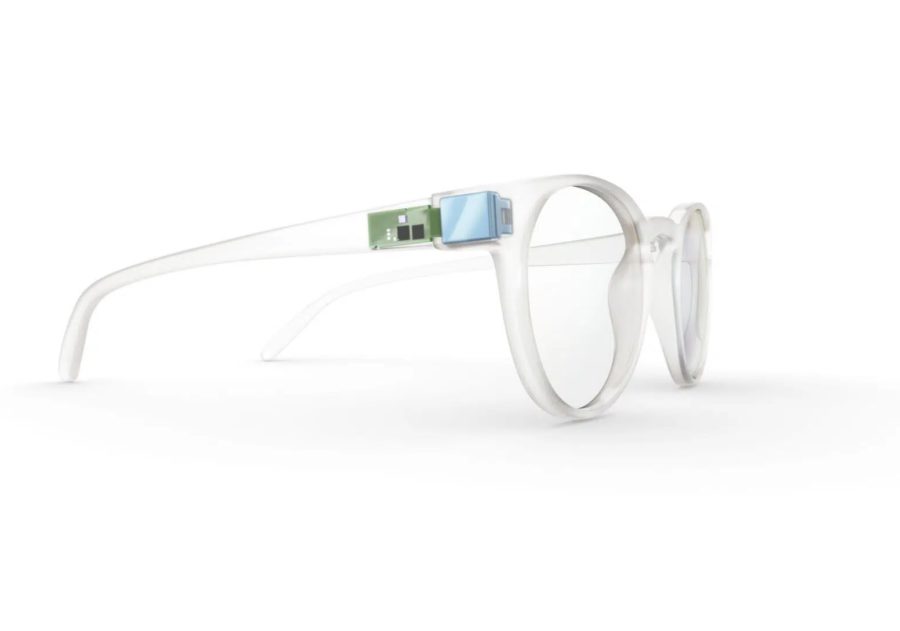
August 9 2021 – Infineon Technologies AG, a provider of semiconductor solutions, has today announced its new MEMS (Micro Electro Mechanical Systems), comprising a MEMS mirror and MEMS driver. The company states that the product’s miniature size and low power consumption will form the basis for making augmented reality (AR) solutions more widely available for consumer applications, such as wearables and for automotive head-up displays, and will allow for completely new product designs.
“Augmented reality solutions enrich real environments with valuable digital data and help people to move around more conveniently and safely in daily life, for business and leisure activities, but especially on the street,” said Charles Chan, head of Infineon’s automotive MEMS product line. “Maps, infotainment or messages projected on everyday glasses guide people to the nearest supermarket or shared car park around the corner. Overlaying valuable information, from route navigation to driver assistance systems, over the car’s complete windshield, instead of just over a small area in front of the driver, is a major step ahead for improving driving safety and convenience.”
Infineon’s MEMS scanner chipset features an innovative tilting mirror which lays the foundation for a new generation of laser beam scanner (LBS) projectors, according to the company.
Using the automotive sector as an example, the company stated that a major challenge when developing AR-HUDs (head-up displays) is integrating the system into the dashboards of vehicles, due to space restrictions. Conventional HUD systems can be more than 30 liters in optical volume, yet still offer only a very modest field of view. By contrast, Infineon stated that laser beam scanners based on its MEMS scanner chipsets will enable HUD systems with minimum optical volume, so they can be integrated into even the smallest dashboard, bringing AR-HUDs with a large field of view to small cars and compact classes.

Looking at AR smart glasses, Infineon stated that its MEMS scanner chipset will enable the design of an AR micro-projector that is light in weight and can be aesthetically integrated into all-day-wear eyeglasses and sports glasses. Thanks to the chipset’s low power consumption, small batteries can easily be integrated into the frames of glasses, allowing them to be worn conveniently throughout the day without the need to frequently recharge the batteries.
To advance the development of AR smart glasses’ systems for the consumer market, Infineon is collaborating with TriLite Technologies GmbH, a Vienna-based start-up. While Infineon looks after the MEMS scanner chipset, TriLite is responsible for system integration and control algorithms that enhance the optical performance of the system. Both companies combine several years of research in optical MEMS and mass manufacturing capabilities, according to Infineon.
For more information on Infineon and its MEMS solutions, please click here. For more information on TriLite Technologies and its AR smart glasses technology, click here.
Image credit: Infineon Technologies AG / TriLite Technologies
About the author
Sam is the Founder and Managing Editor of Auganix. With a background in research and report writing, he has been covering XR industry news for the past seven years.
